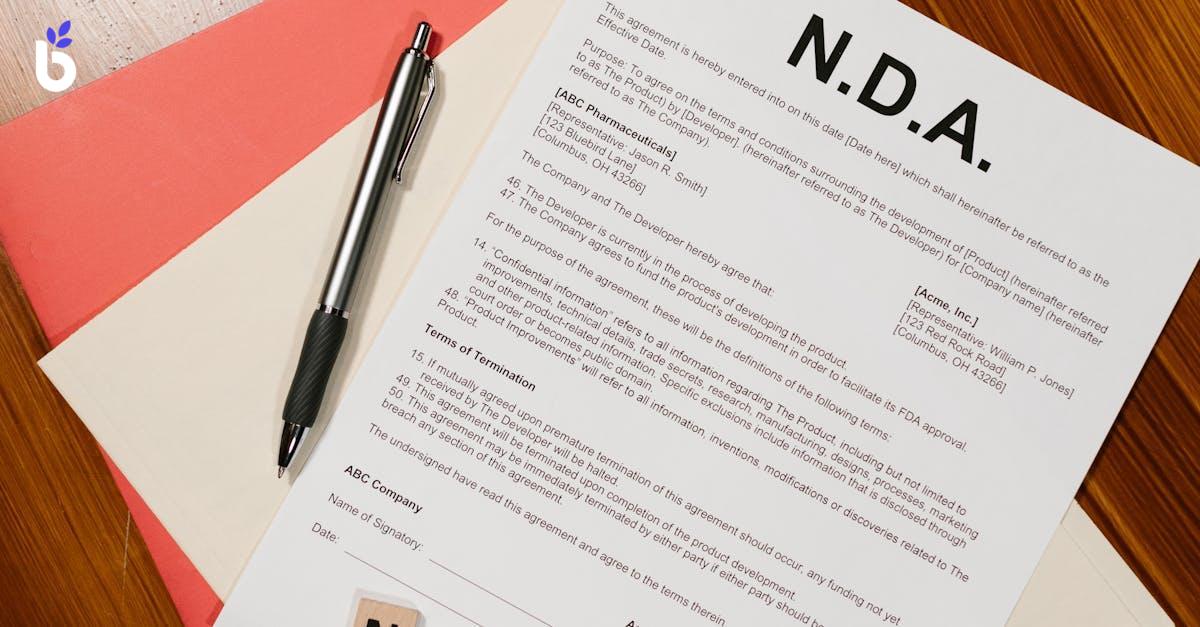WHAT IS A CONFIDENTIALITY AGREEMENT?

What is a Confidentiality Agreement?
A Confidentiality Agreement, commonly known as an NDA (Non-Disclosure Agreement), is a legal contract that establishes a secure relationship between two parties. It ensures that any confidential information disclosed during the term of the agreement remains protected, preventing any unauthorized sharing of sensitive details.
Overview of Confidentiality Agreement (NDA)
In the realm of business, a Confidentiality Agreement plays a crucial role in safeguarding proprietary information. This agreement forms a bond of trust where one party shares confidential data with the expectation that the counterpart will maintain discretion. Typical types of information covered under such agreements include:
- Technical developments and inventions
- Trade secrets and proprietary documents
- Business strategies and financial records
These clauses help in creating a secure environment for sharing critical business insights without the fear of exposure to external entities.
Purpose and Importance
The primary aim of a Confidentiality Agreement is to protect sensitive data. When businesses or individuals engage in negotiations that involve proprietary information, it is essential to establish trust that the shared information will remain confidential. Key purposes include:
- Ensuring legal protection against unauthorized disclosure
- Defining the scope of confidentiality
- Limiting liability for the disclosing party in case of unauthorized information usage
By engaging in a Confidentiality Agreement, parties can feel secure that their innovative ideas and confidential documents are insulated from misuse, ensuring mutual respect and protection.
"Confidentiality Agreements are integral to building trust in business partnerships by safeguarding vital information."
Key Elements of an NDA
Understanding the key components of a Confidentiality Agreement is essential for both parties involved. A well-drafted NDA typically includes:
- Introduction: This section outlines the purpose of the NDA and the parties involved.
- Definitions: Clearly defines terms used within the agreement.
- Scope of Information: Specifies what constitutes confidential information.
- Obligations: Outlines the responsibilities of each party regarding the confidentiality of shared information.
- Duration: States how long the confidentiality obligations will last.
The inclusion of these elements ensures clarity and thorough understanding, enabling smooth operations and reducing the likelihood of disputes.
FAQs
Can an NDA be mutual?
Yes, parties can create a mutual NDA, where both sides agree to protect sensitive information shared with each other.
How long does the confidentiality obligation last?
The duration of confidentiality obligations can vary, with some agreements specifying a fixed period, such as two years, while others may be indefinite.
Can an NDA restrict all types of information sharing?
Absolutely. A Confidentiality Agreement can limit the sharing of all types of information across verbal, digital, or written formats.
What happens if one party breaches the NDA?
In the event of a breach, the non-breaching party has the right to seek legal recourse for damages incurred. This may include monetary compensation for any financial losses stemming from the breach.
Conclusion
Confidentiality Agreements, or NDAs, serve as fundamental tools in today’s business landscape, fostering trust and protecting valuable information. By understanding the purpose, key elements, and the significance of these agreements, parties can navigate their partnerships effectively while safeguarding their interests.
Take control of your business today
Explore BizCRM App and start your journey towards business success.
